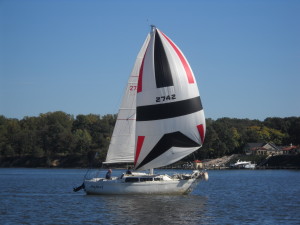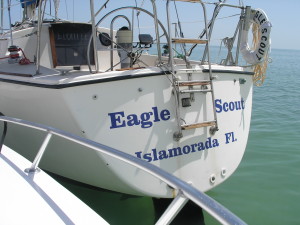Each Scout unit must establish a culture of outdoor risk management in order to enhance the odds that a successful, safe, outcome is achieved.
The New Zealand Mountain Safety Council in its book “Outdoor Safety – Risk Management for Outdoor Leaders” (2013), likens such a culture to the sailing of a boat, having the following crew on board:
- Participants (Scouts) – they are the mainsail, whose safe practices, knowledge and skill level have a significant impact on safety and success of the voyage;
- Unit leaders – they serve as the tiller and rudder, adjusting the direction of the boat in relation to changing conditions, based on their training, skill, and experience;
- Volunteer parents (untrained adults) – they can either assist or impede the progress of the boat, depending on their skill and experience, and ability to work in cooperation with other crew members;
- Health and safety officer (unit leader most knowledgeable of potential risk issues) – this crew member ensures that the direction of the boat is appropriate in view of relevant risk management procedures; and
- Governing body (BSA) – the governing body provides structure and guidance by way of appropriate best practices and safety policies, to which the boat’s crew must adhere during sailing.
 This is a good analogy for units to use when planning and conducting an outdoor activity.
This is a good analogy for units to use when planning and conducting an outdoor activity.
Safe sailing!
The unit must have a culture of risk management to safely “sail the boat”!

